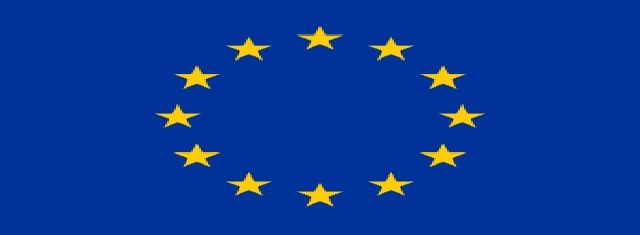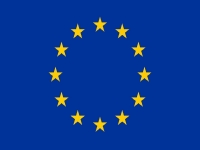Lifestyle
EUROPEAN UNION humanitarian action - World Humanitarian Day
Brussels, 19 August 2016

EUROPE FLAG
USPA NEWS -
Every year on August 19, the European Union adds its voice to those who honour the invaluable contribution of humanitarian workers who risk their lives every day to save the lives of others. World Humanitarian Day marks the anniversary of the 2003 bombing of the UN headquarters in Baghdad, Iraq,...
Every year on August 19, the European Union adds its voice to those who honour the invaluable contribution of humanitarian workers who risk their lives every day to save the lives of others. World Humanitarian Day marks the anniversary of the 2003 bombing of the UN headquarters in Baghdad, Iraq, when 22 humanitarian workers were killed.
A world leader in humanitarian assistance in times of unprecedented crisis :
Together with funding provided by EU Member States, the European Union is the world's largest donor of humanitarian aid.
A world leader in humanitarian assistance in times of unprecedented crisis :
Together with funding provided by EU Member States, the European Union is the world's largest donor of humanitarian aid.
Overall, humanitarian assistance from the EU budget in 2015 helped more than 134 million people caught up in natural disasters or conflict in over 80 countries across the world.
For 2016, the European Commission adopted its highest ever initial humanitarian aid budget to date of €1.1. billion. The record budget was proposed as global humanitarian needs are increasing due to the growing number of refugees and displaced persons as a result of armed conflict, the increasing impact of natural disasters, climate change and the economic crisis.
For 2016, the European Commission adopted its highest ever initial humanitarian aid budget to date of €1.1. billion. The record budget was proposed as global humanitarian needs are increasing due to the growing number of refugees and displaced persons as a result of armed conflict, the increasing impact of natural disasters, climate change and the economic crisis.
While natural disasters such as the earthquake in Nepal affected millions of people in 2015, armed conflicts have been the greatest driving force of humanitarian needs.
Last year was marked by four major emergencies (Syria, Iraq, Yemen and South Sudan), according to the United Nations highest crisis level standards. 2015 witnessed the highest levels of forced displacement since the Second World War.
Last year was marked by four major emergencies (Syria, Iraq, Yemen and South Sudan), according to the United Nations highest crisis level standards. 2015 witnessed the highest levels of forced displacement since the Second World War.
Consequently, a large part of EU humanitarian aid goes to refugees and displaced people with the European Commission providing more than €1 billion or some 73% of its annual humanitarian aid budget in 2015 to projects helping refugees and internally displaced people (IDPs). The biggest part of humanitarian aid for refugees consists in food assistance and nutrition (47%). Other main sectors are health (13%), water, sanitation and hygiene (10%), shelter and non-food items (9%) as well as protection (8%).
Given these unprecedented humanitarian crises in 2015, the European Commission targeted humanitarian aid to those most in need and most vulnerable, and by strengthening its policy response. At the first-ever World Humanitarian Summit in May 2016, the EU welcomed the launch of the 'Grand Bargain', to redirect at least US$1 billion dollars over the next five years to the frontline of humanitarian action where it is needed most.
All humanitarian aid is impartial and independent, and is provided to non-governmental and international organisations, the United Nations and the Red Cross societies.
Humanitarian workers: an increasingly dangerous job :
Over the past two decades, humanitarian challenges have become more and more complex and humanitarian organisations are facing growing problems in gaining access to those in need. In the past 19 years, nearly 4000 humanitarian workers were victims of major attacks and more than one third of them were killed. The majority of the victims of attacks are nationals serving in their own countries.
Humanitarian workers: an increasingly dangerous job :
Over the past two decades, humanitarian challenges have become more and more complex and humanitarian organisations are facing growing problems in gaining access to those in need. In the past 19 years, nearly 4000 humanitarian workers were victims of major attacks and more than one third of them were killed. The majority of the victims of attacks are nationals serving in their own countries.
Despite a reduction of attacks on aid workers from 2013 to 2015, this does not mean that the profession has become safer. This is because the numbers of attacks declined because fewer aid workers could be deployed to the field due to volatile security situations. As a result, millions of people in need can be left without life-saving support if insecurity forces aid organisations to suspend operations or pull out of dangerous regions.
Attacks against humanitarian personnel are a clear violation of International Humanitarian Law which seeks to limit the effects of armed conflict on civilians. It spells out the responsibilities of states and non-state parties during armed conflict and defines basic issues, such as the right to receive humanitarian assistance, the protection of civilians, including medical and humanitarian workers, and the protection rights of vulnerable groups.
The principles that guide humanitarian action ““ humanity, impartiality, neutrality and independence ““ also have their basis in International Humanitarian Law.
Source : European Commission
Ruby BIRD
http://www.portfolio.uspa24.com/
Yasmina BEDDOU
http://www.yasmina-beddou.uspa24.com/
The principles that guide humanitarian action ““ humanity, impartiality, neutrality and independence ““ also have their basis in International Humanitarian Law.
Source : European Commission
Ruby BIRD
http://www.portfolio.uspa24.com/
Yasmina BEDDOU
http://www.yasmina-beddou.uspa24.com/
Ruby Bird Yasmina Beddou Brussels 19 August 2016 European Union World Humanitarian Day Humanitarian Action
Liability for this article lies with the author, who also holds the copyright. Editorial content from USPA may be quoted on other websites as long as the quote comprises no more than 5% of the entire text, is marked as such and the source is named (via hyperlink).






